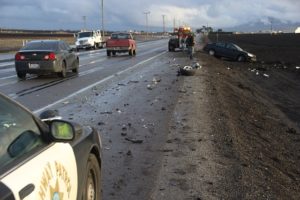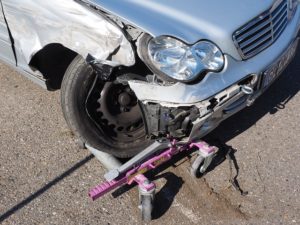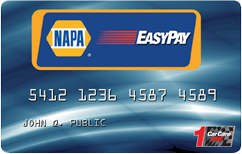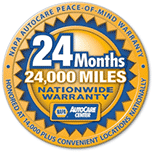 Getting in a car accident or collision is a frightening experience even if no one was hurt and the accident was relatively minor. Drivers and passengers alike can be quite unnerved from the jolt of the impact, and concern of everyone’s wellbeing is top of mind.
Getting in a car accident or collision is a frightening experience even if no one was hurt and the accident was relatively minor. Drivers and passengers alike can be quite unnerved from the jolt of the impact, and concern of everyone’s wellbeing is top of mind.
If it appears that a passenger in your car is hurt or excessively shaken up, it is better to dial 911 and not delay. Because of the adrenaline racing in your body, sometimes an internal injury from an accident is not immediately recognizable.
Once you determine that you and everyone in your vehicle is otherwise okay, now it’s time to assess the damage to your vehicle and what auto repair may be needed. If possible, it is suggested to move your vehicle to the shoulder if you can. (If not, that’s okay too.) Put on your hazard lights or even put out flares and cones if you have them. By doing so, you can prevent another accident from happening.
Assess the Damage and Auto Repair
Next, try to get a good visual of the damage to your car and evaluate the auto repair that will be necessary. Though this can be an emotional experience try to keep your temper under control particularly if you feel the accident was caused by another driver. Take some deep breaths and see the situation objectively; most drivers at one point or another are guilty of being distracted, not paying attention, driving too fast, etc.
Now that you’ve gained your wits about the situation, it’s time to document the scene. Take photos of the damage caused using your phone and write down what happened either digitally or using a paper or pen. This way when you work with the insurance company, you can tell them clearly what happened as you are not likely to remember details. Take notes on what part of the vehicle is damaged, areas of possible car repair, what happened, etc.
Who Pays for Auto Repair after an Accident?
Go to your glove box and get out all your driving credentials including vehicle registration and insurance. Most likely you will have to share this with the police when they arrive to the scene and the other driver. You will have to get their identifications as well. A helpful tip is to use your phone to take pics of the other driver’s license, insurance card, and other credentials.
When interfacing with law enforcement, be polite and respectful as possible. The officer will make a report based on what they observe, witness accounts, and what you / the other driver tell them. In some cases, the officer will issue a ticket to the at-fault party. (If you dispute this, you can take it up in court. It’s best not to argue with the officer at the time.) You also want to avoid stating fault even if you think you are to blame.
The police report will play a significant role in determining fault and ultimately how much you end up paying in auto repair. If you’re at fault, your insurance covers the cost of auto repair for the other driver and vice versa. Minor fender benders or accidents that don’t involve other vehicles – you ran the car into post – may not require police reports or at fault designations.
Car Repair and Insurance Companies
 If you haven’t already, call your insurance company to report the accident and discuss how to proceed with auto repair. If you were at fault, your insurance will be used (hopefully) to cover the auto repair cost of the other vehicle. In such a situation, you can expect your insurance rates to increase.
If you haven’t already, call your insurance company to report the accident and discuss how to proceed with auto repair. If you were at fault, your insurance will be used (hopefully) to cover the auto repair cost of the other vehicle. In such a situation, you can expect your insurance rates to increase.
If the other party is at fault, you will have to work with their insurance company to file a claim and have them pay for auto repair. Be prepared for this to take some time to process, several weeks, as the other party’s insurance company may fight the claim.
Oftentimes, you may need to pay for auto repair directly and then wait to get reimbursed. You can also work with the auto repair shop to collect payment directly from the insurance company. Sometimes insurance companies will suggest you have your vehicle towed to certain auto repair shops but keep in mind that you have the right to use whichever repair shop you choose.
Insurance Won’t Pay for Auto Repair When the Vehicle Is “Totaled”
It’s well understood that insurance companies do everything they can to keep their costs low; this is the nature of their business. When the damaged vehicle arrives to the auto repair shop, mechanics will perform an inspection to determine car repair and estimate damage.
If the cost of auto repair is more than or equal to the total value of the vehicle, the insurance company categorizes the car as totaled and won’t cover the cost of car repair. Instead they will issue you a check for the vehicle’s settlement value, which can be used to purchase a new car.
Sometimes this happens in situations when it is not expected. Maybe the vehicle doesn’t look that badly damaged and the driver thinks car repair is possible. In these situations, the car may be valued at less than the owner had thought. Alternatively, the damage may be internal making the engine repair too costly to be deemed worth it. If you disagree with the insurance company’s findings, you can dispute this with them or get another estimate from a different auto repair shop.






